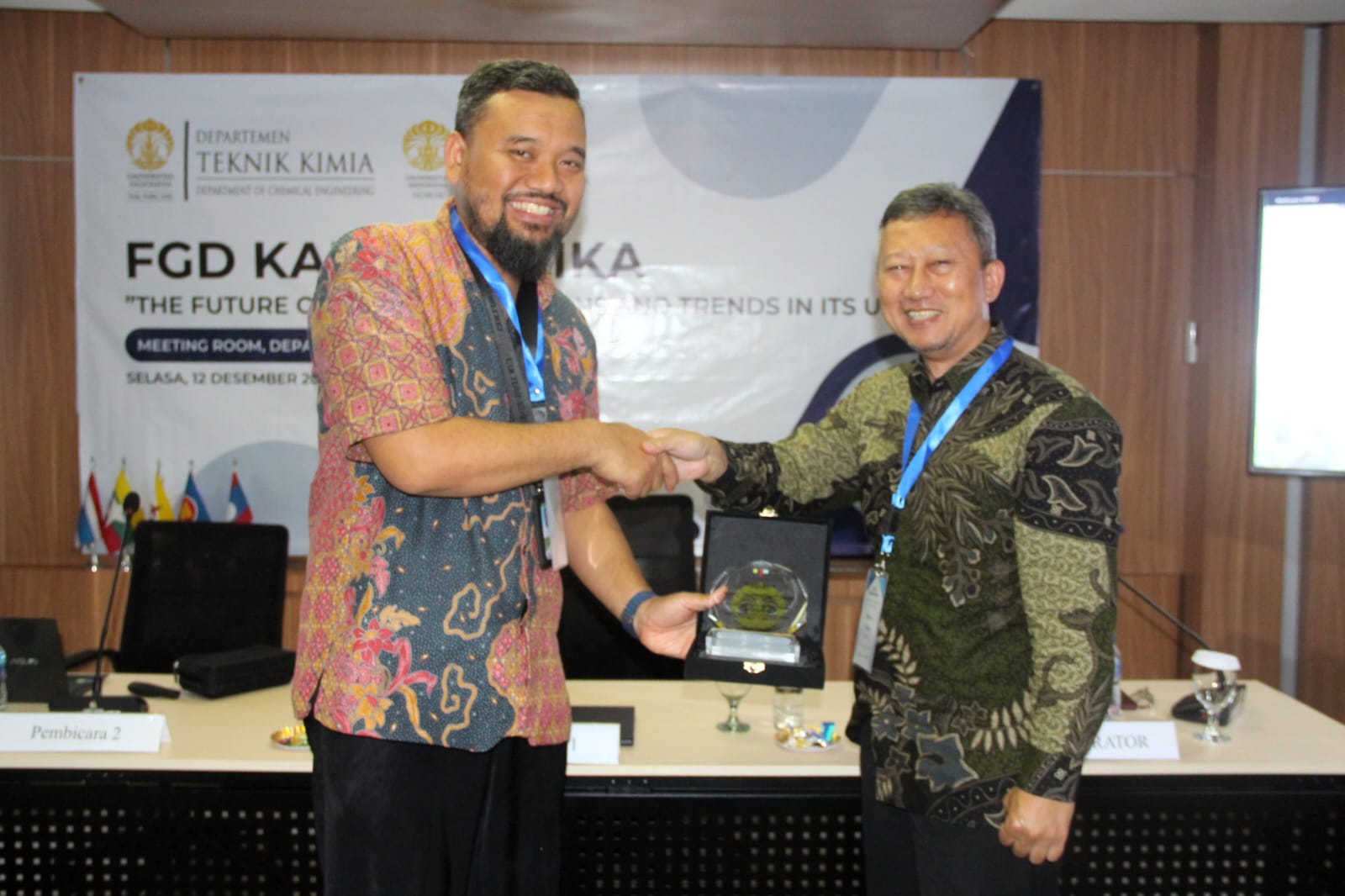Several regions in Indonesia are rich in silica sand resources, including West Kalimantan, Riau Islands, Bangka Belitung, Central Kalimantan, and South Kalimantan. Silica and its derivatives are commonly used in the chemical industry, cement production, glassmaking, ceramics, refractories, foundry, sandblasting, resin-coated sand, and water treatment. With the abundant potential of silica, the utilization and development of silica raw materials are crucial for the future of the silica industry in the country.
Universitas Indonesia (UI), through the Faculty of Engineering (FT), organized a Focus Group Discussion (FGD) to support and promote synergy among various silica stakeholders, including government, industry, academia, researchers, and associations. The FGD, titled “The Future of Silica: Innovations and Trends in Its Use,” is expected to foster collaboration among stakeholders to create mechanisms and policies that will lead to the independence of the silica industry in Indonesia.
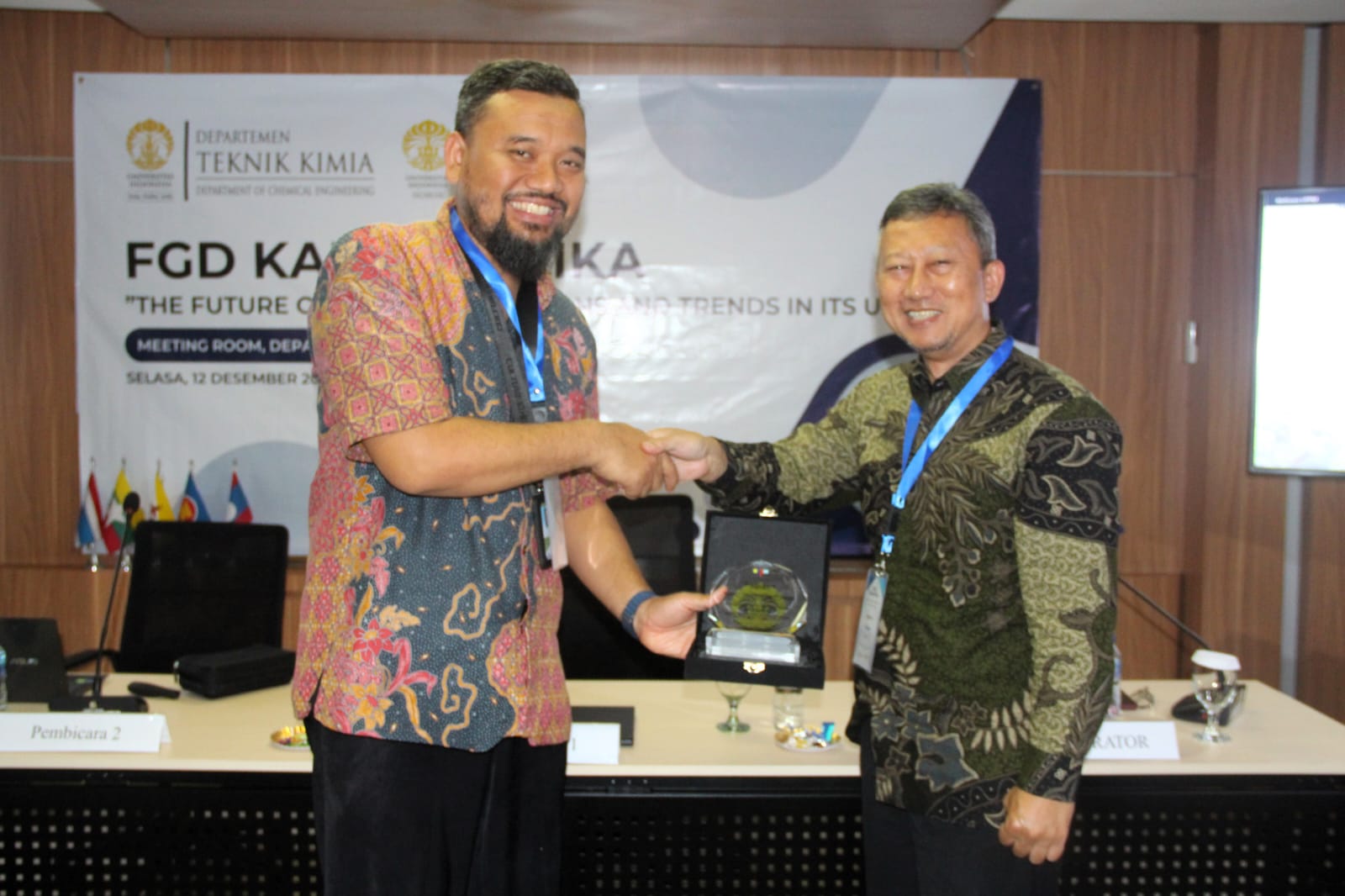
In his opening speech at the event, Dr. Bambang Heru Susanto, Head of the Chemical Engineering Department at FTUI, expressed, “This FGD brings together various domestic silica stakeholders, including representatives from the government (represented by the Ministry of Industry), industry, academia, researchers, and associations. The hope is that this event can be the starting point for close collaboration in addressing challenges and advancing the silica industry.”
Several innovative research results by Indonesian researchers were presented during this FGD. Dr. Agus Ismail, during his doctoral research at the Department of Chemical Engineering (DTK) FTUI, successfully developed silica sand from Lampung into products. Among the produced items are sodium silicate, nano-silica, and eventually, superhydrophobic nano-silica-based water-resistant asphalt for roads.
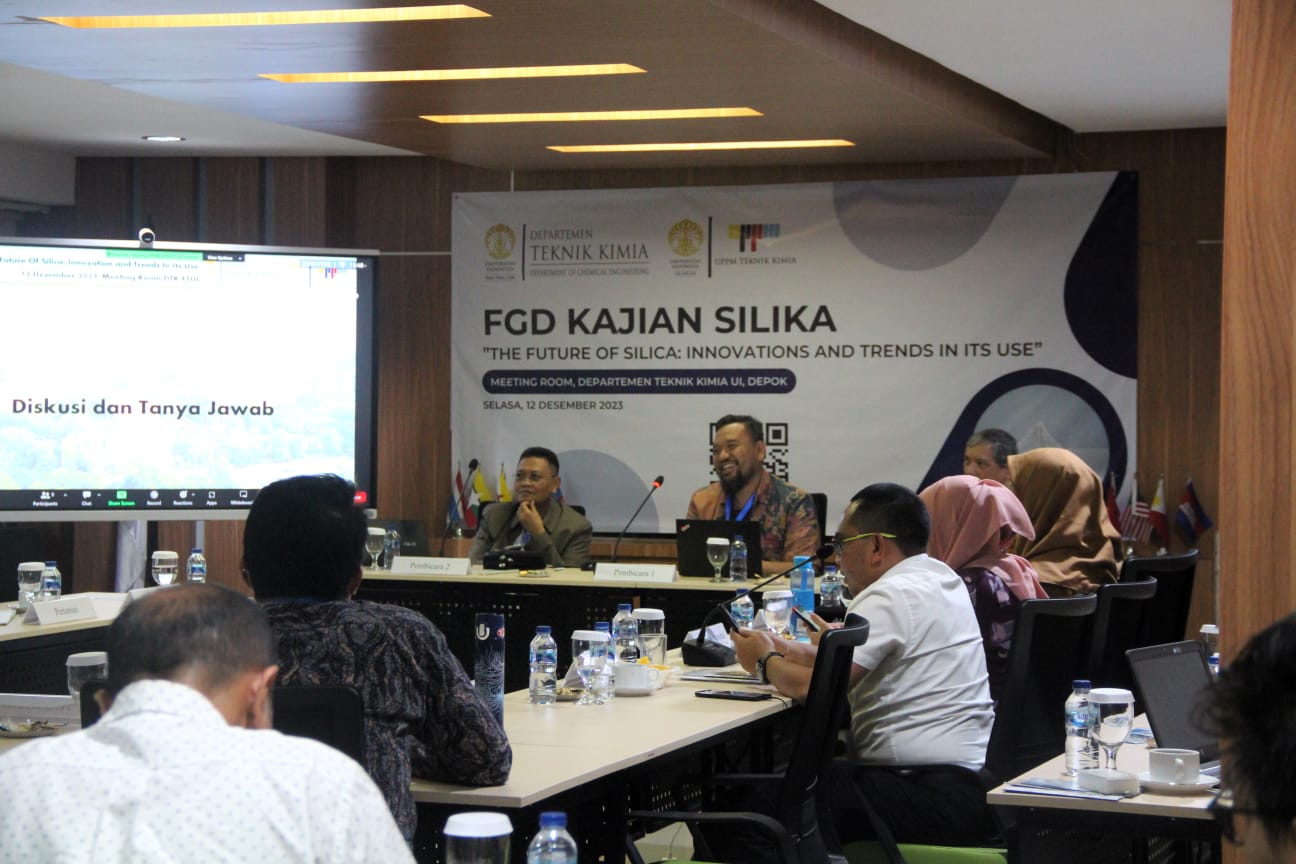
Furthermore, Dr. Murni Handayani, a researcher at the National Research and Innovation Agency (BRIN), developed innovations such as water-resistant asphalt, nano paint, nanomaterials, and energy storage (batteries). Another innovation presented by Pertamina Research, Technology, and Innovation (RTI) involves utilizing silica as a byproduct of geothermal energy (brine neothermal), transforming it into sodium silicate for making tires, adhesives, fire-resistant coatings, ceramics, and metal cleaners.
As the coordinator of this FGD, Prof. Praswast PDK Wulan emphasized the importance of innovation in silica production and its derivatives for the future of silica in Indonesia. These innovations are expected to overcome significant challenges in the silica industry, particularly the lack of intermediate silica products. The research results presented demonstrate that Indonesia is capable of achieving self-sufficiency in the silica and its derivatives industry.
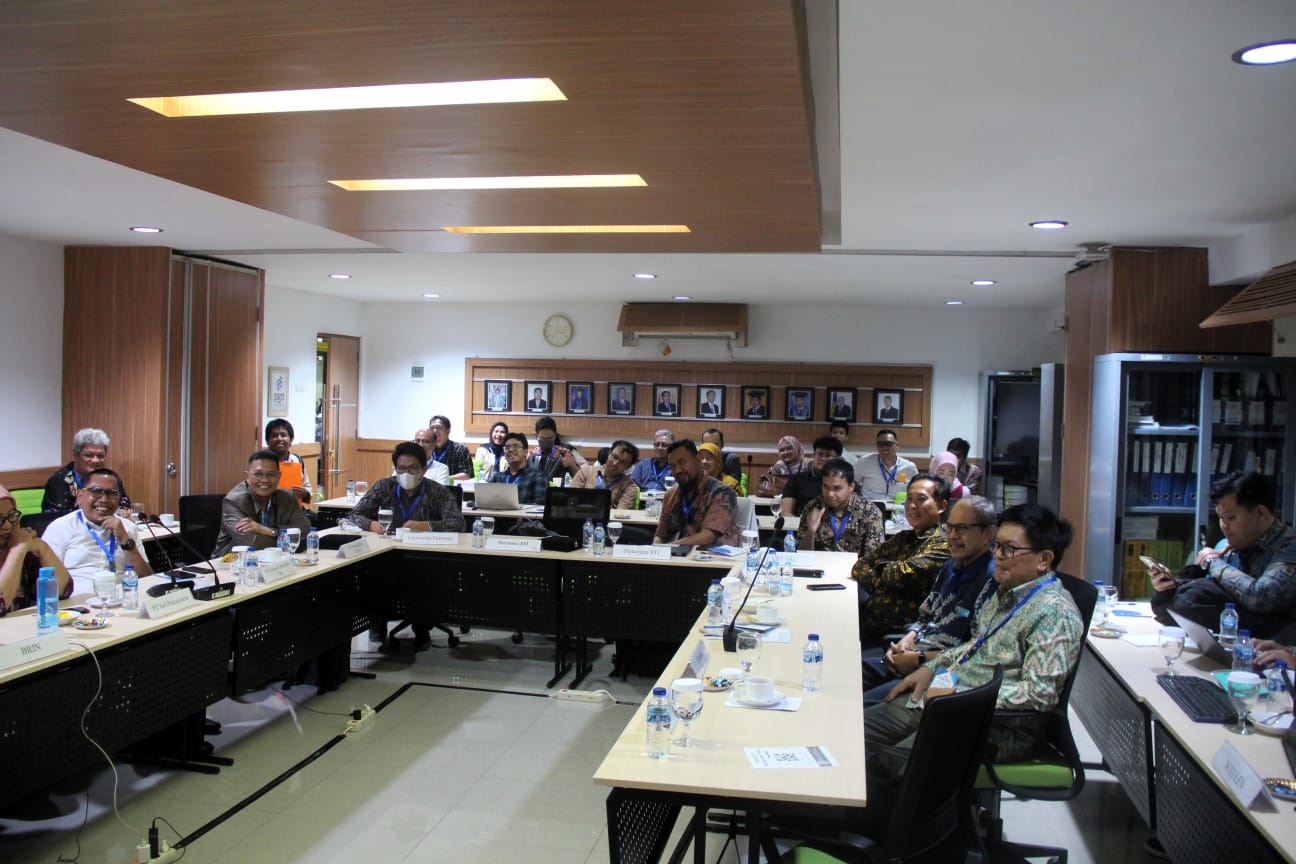
Although the downstream challenges of silica commodities involve infrastructure, technology, raw materials, human resources, costs, marketing, licensing, and regulations, industry players hope that raw materials, mostly imported, can be produced domestically with specifications that meet industry needs and competitive prices. This will realize national self-sufficiency in silica and its derivatives, increasing the value-added of silica.
Prof. Dr. Heri Hermansyah, S.T., M.Eng., IPU., Dean of FTUI, said, “The benefits of achieving silica self-sufficiency in Indonesia are the main focus of this FGD. By producing silica and its derivatives independently, Indonesia can reduce dependence on imported silica raw materials. This not only provides economic benefits through reducing foreign exchange expenditures but also enhances industrial resilience in facing international market fluctuations. This independence also opens opportunities to optimize the utilization of Indonesia’s natural resources, create local employment opportunities, and increase the value-added of the industry domestically.”
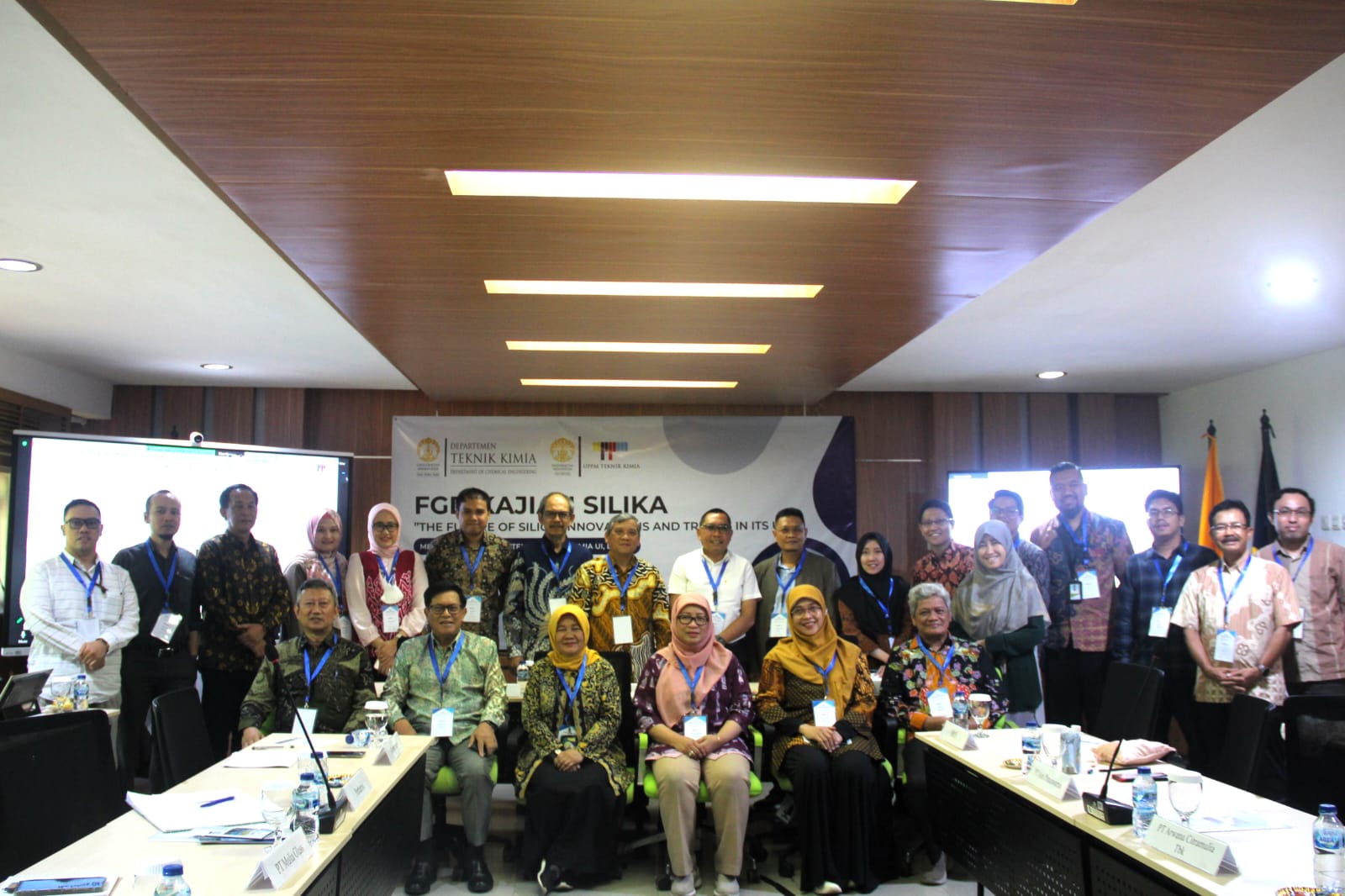
The FGD, held on Tuesday (12/12), was initiated by the Community Service Unit (UPPM) of DTK FTUI under the leadership of Riezqa Andika, ST, Ph.D. Participants in the discussion included the Founder and Chairman of the Indonesian Silica Mining and Industry Association (PERTAMISI), Dr. Raden Sukhyar; Director of Cement, Ceramic, and Non-Metallic Mineral Processing Industry, Ministry of Industry Wiwik Pudjiastuti; business players in the ceramic and granite industry (PT. Arwana Citra Mulia Tbk and PT. Asri Pancawarna), glass industry (PT. Mulia Glass), tire industry (PT Suryaraya Rubberindo Industries), PT NOK Indonesia, PT BAT (Benteng Api Technic), and PT SIG (Semen Indonesia Gresik). Representing academia and serving as the moderator were Prof. Abdul Wahid, a Professor at DTK FTUI, and Dr. Intan Clarissa Sophiana, a lecturer at DTK FTUI.
***
Public Communication Office
Faculty of Engineering Universitas Indonesia

